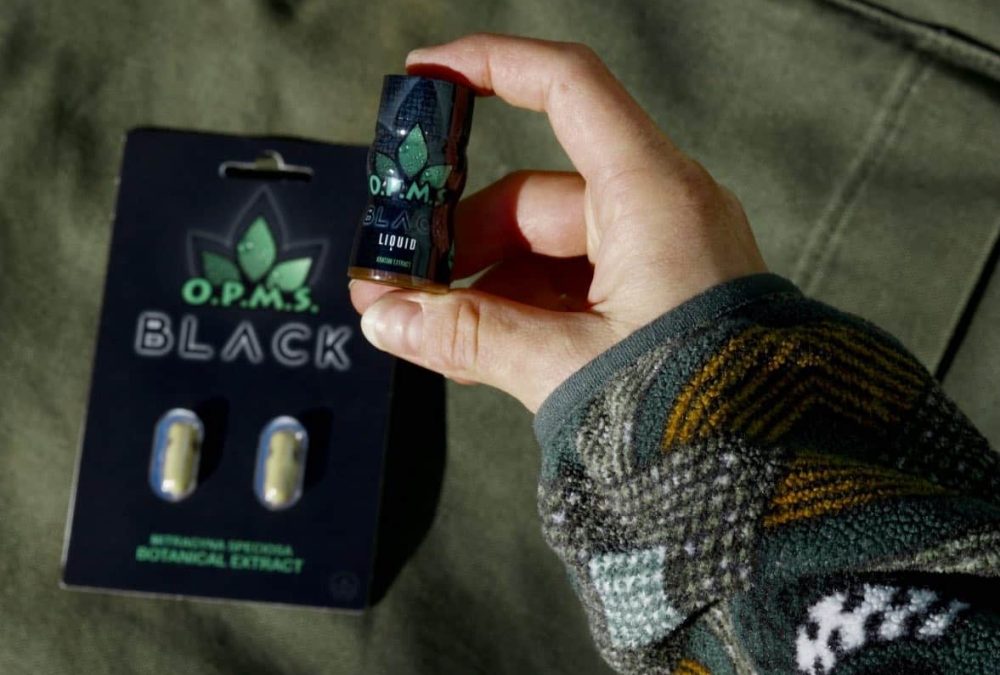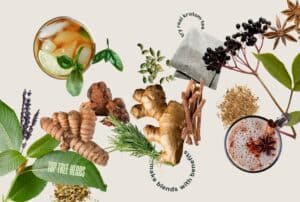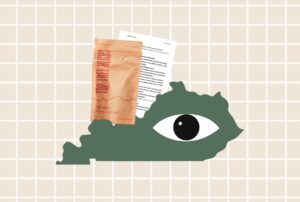If you follow the kratom news, you’re probably familiar with a number of kratom lawsuits and recalls that have occurred in recent years, including the OPMS lawsuits.
Many of these legal battles are related to a lack of kratom industry regulation. Kratom is not currently regulated at the national level, so consumers have to take extra steps to ensure their products are manufactured safely.
How Regulatory Issues Contribute to Legal Battles Like the OPMS Kratom Lawsuit
Regrettably, there are many kratom vendors out there who don’t support the KCPA and other regulatory legislation for kratom. Oftentimes, this happens because increased transparency and safety standards cut into company profits.
These profit-motivated vendors fail to ensure the quality of their products and the transparency of their labeling. It’s not a huge surprise that lawsuits have ensued. For instance, the recent lawsuit against Botanic Tonics was related in large part to misleading marketing and omissive labeling practices.
Regardless of the fact that kratom isn’t federally regulated, it’s troubling to see this happen. Good kratom vendors should follow natural product safety protocols even though federal laws do not yet mandate them.
Trying to determine which kratom vendors to stay away from? It’s a good idea to monitor the news for kratom recalls and lawsuits. Even though OPMS Kratom is a large kratom company with widespread product availability, you shouldn’t buy their products without doing some research first.
You may have caught wind of an upcoming OPMS kratom lawsuit. Why is OPMS kratom being sued? What is the new kratom lawsuit about? Has OPMS recalled any of its products?
We’ve put together an overview of the OPMS kratom lawsuit. On top of that, we’ll cover the broader things you need to know to make more informed decisions when buying kratom.
What Is OPMS Kratom?
OPMS Kratom, or Optimized Plant Mediated Solutions, is a well-known kratom and kava brand founded around 2009. OPMS Kratom is one of the largest manufacturers of concentrated kratom extract products.
It is also widely known as one of the most popular “head shop kratom brands.” You can readily find it at gas stations, head shops, and smoke stores across much of the country.
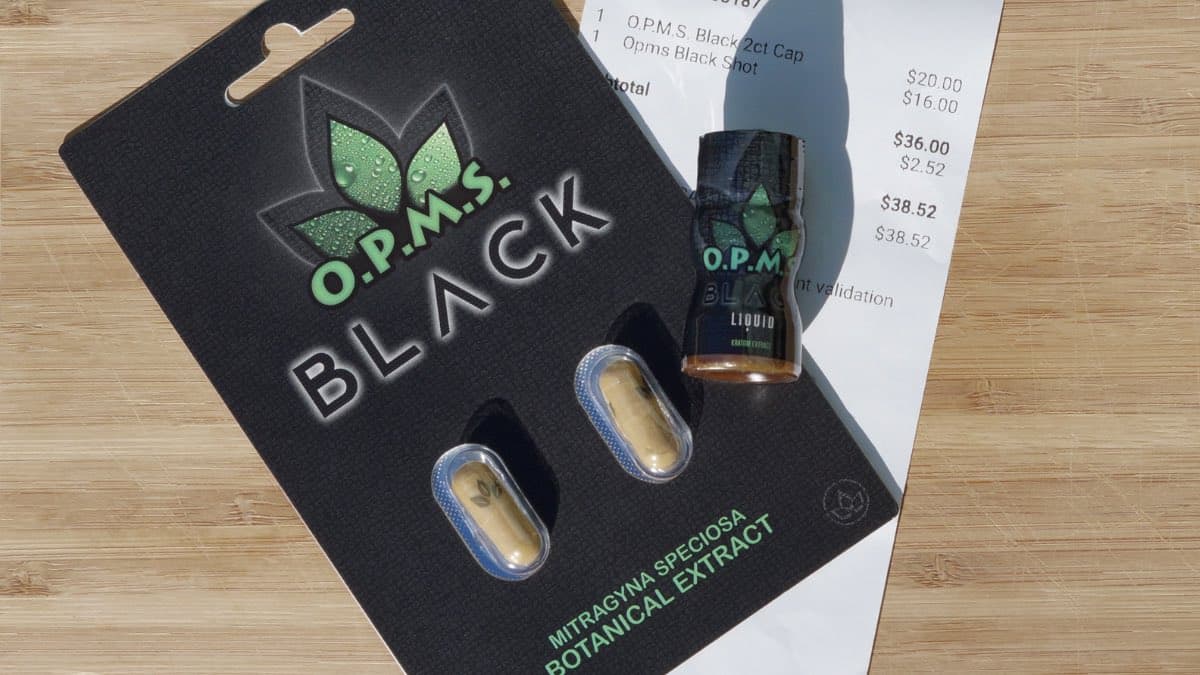
OPMS Kratom is known for having the strongest kratom extracts on the market, according to some consumers. (They’re also known for making some of the most expensive kratom extracts.)
Of course, OPMS Kratom is not without its controversies. Individual retailers of the company’s extracts have warned customers that the extracts are not for daily consumption. They also recommend only consuming them in small quantities. A number of individuals have reported ill effects from OPMS products.
On a broader scale, OPMS kratom has skewed many peoples’ perception of what kratom is. The company has a general lack of transparency, inadequate product labeling, and innumerable negative product reviews.
They have left many kratom activists concerned and many customers frustrated.
What is the OPMS Lawsuit About?
At least two lawsuits have been filed against OPMS since 2022. The first OPMS lawsuit is a civil action suit filed in Georgia at the end of 2022. The second is a class-action lawsuit filed in San Diego County, California in February of 2023. The latter has since been removed to federal court.
Civil Suit: The Wrongful Death of Ethan Pope
The Optimized Plant Mediated Solutions lawsuit centers around the death of Ethan Pope. Ethan, who was 23 at the time, was found dead on the kitchen floor of his apartment on December 3rd, 2021. Prior to his passing, he had purchased bottles of OPMS Black Liquid Kratom extract.
The medical examiner in the case concluded that Ethan Pope died from a cardiac arrest, and attributed it to mitragynine intoxication. A toxicology screening found antihistamine and antidepressant medications in Ethan’s system—which is omitted by some news sources—but no illegal drugs or alcohol. The Georgia Bureau of Investigation ruled his death an accident.
Some sources warn against mixing kratom with antihistamines. However, researchers have not yet performed clinical trials on potential interactions between them. While kratom research is growing, there is still a lot of information on the plant and its alkaloids that has yet to be elucidated.
There is an even greater lack of information on highly concentrated extracts like the one Ethan consumed. While kratom has been consumed for centuries as a tea, extracts have only been available for a couple of decades.
Allegations Made in the Civil Action OPMS Lawsuit
Ethan Pope’s family originally filed a lawsuit against OPMS Kratom in May 2022. It was then amended in October 2022. In addition to OPMS (or O.P.M.S.), the lawsuit also names OPMS wholesale companies Choice Organics and Martian Sales, Inc. Furthermore, it also names a handful of individuals, retailers, and organizations. This includes the American Kratom Association (AKA), an industry-backed group that lobbies for kratom regulation and education.
Some of the primary claims that the Pope family OPMS lawsuit alleges are:
- OPMS produced highly concentrated kratom products with high alkaloid levels
- OPMS failed to properly label and package their products to inform consumers of the potential risks associated with the products
- OPMS failed to provide effective instructions for the product’s consumption
Clearly, labeling is crucial when it comes to selling kratom. As a matter of fact, nearly all of the recent kratom legal cases involve improper labeling.
The Shift in the Pope Family Lawyers’ Stance on Kratom
In an interview about the OPMS lawsuit, one of the Plaintiff’s lawyers, Matt Wetherington, stated, “I’m not a fan of an outright ban of kratom. But people shouldn’t be getting this product without knowing what they are getting. This is about consumer knowledge.”
Wetherington’s statement is interesting, as it departs from his former position on kratom legality. In fact, in 2022, the Pope family’s lawyers overran a Georgia hearing to advocate for banning kratom. The original bill Wetherington and his colleages supported would have criminalized kratom consumers in the state.
Yet, research and data on kratom-related health issues didn’t match the lawyers’ claims. Since the hearing, their publicized concerns about kratom products have seemingly become less exaggerated. They now appear to be more narrowly focused on criticizing kratom extracts and other concentrated products.
“Kratom may have a place in the market,” Wetherington continued, “I don’t know what it is. I do know that the organizations that are currently misleading the public about it do not have a place. Anything can be dangerous when concentrated a certain way. It may be the case that kratom has some sort of benefit at very low doses. That should be investigated and studied in the open market and scientific world.”
Are the Lawyers’ Opinions Justified?
In case you didn’t know, kratom vendors are limited in what they can and can’t say when marketing kratom. Because the US Food and Drug Administration hasn’t approved kratom for any purpose, vendors cannot make any claims about health benefits or effects.
Nevertheless, as Matt Wetherington rightly stated, it is not rare to find misleading information or illegal claims on some kratom vendors’ websites. From fabricated kratom strain descriptions to falsified lab testing reports, there are many ways kratom companies have intentionally deceived customers.
Why Is the American Kratom Association Named in the Georgia OPMS Lawsuit?
The American Kratom Association (AKA) is an advocacy group dedicated to representing kratom consumers in the United States. Primarily, they fight to have kratom regulated through the Kratom Consumer Protection Act (KCPA). Additionally, the AKA promotes research and education on kratom.
The AKA is one of the most vocal proponents of regulating kratom and ensuring that vendors follow Good Manufacturing Practices (GMP).
What are Good Manufacturing Practices?
GMP encompasses everything from safety protocols for manufacturing products to labels with proper instructions and warnings for consumers. These GMP guidelines exist for foods, supplements, drugs, and cosmetic products.
All of these guidelines exist to protect consumers from experiencing any adverse health effects from products they use.
So if the AKA promotes GMP in the kratom industry, why would they be listed as a defendant in the lawsuit?
Should OPMS Be an AKA-Approved Vendor?
Well, the AKA prominently features OPMS as a member of their GMP Standards Program despite the fact that OPMS has not historically followed GMP regulations.
Currently, Optimized Plant Mediated Solutions is the foremost kratom brand of the list of “AKA GMP Qualified” vendors. According to the AKA, this means that OPMS is independently audited each year to stay GMP-qualified by the AKA. OPMS has been an AKA GMP-qualified vendor since at least 2020.
OPMS’s Alleged Failure to Meet AKA Requirements
According to the Plaintiffs, OPMS has failed to comply with the AKA’s GMP program by:
- Failing to have a “use by” date on its labels
- Failing to provide adequate labeling directions necessary for safe and effective use by consumers
- Failing to include a recommended serving size
- Failing to comply with state law and its own Kratom Consumer Protection Act
- Failing to have a statement on the label that informs pregnant women they should consult a physician before use
- Failing to have the statement “This product is not intended to diagnose, treat, cure, or prevent any disease or condition” on the label.
On their website, the AKA states that, “the GMP Qualified Vendors list should not be construed as the AKA’s endorsement of any organization, vendor, product, or service.” Yet, on the same webpage, the AKA provides a glowing description of OPMS products, a large OPMS logo, and a link to the OPMS website.
In short, the lawsuit alleges that the AKA is negligent in keeping OPMS up on their website because OPMS failed to meet the guidelines to be listed as an AKA-approved vendor.
Furthermore, kratom is regulated in Georgia under the Georgia Kratom Consumer Protection Act. Thus, it is highly problematic that OPMS sold products in the state without meeting the requirements.
In response to these allegations, one of the AKA’s attorneys, Daniel Delnero, stated, “The American Kratom Association is a consumer advocacy group dedicated to education and responsible use of Kratom. It was improperly added to this lawsuit, and we will vigorously defend the spurious claims against it.”
Background: Prior Controversies Associated with OPMS Executive
One of the individuals named in the lawsuit is Peyton Palaio, who has used the pseudonym “Payton Palaia” in business endeavors. Palaio is cited as someone who “owns, manages, or controls OPMS a/k/a Optimized Plant Mediated Solutions, in whole or in part, or has done so in the past.”
Sadly, the OPMS lawsuit isn’t Palaio’s first foray into wrongful death lawsuits.
Palaio has been involved in the processing and manufacturing of kratom products, including OPMS products. He has also owned and managed several marijuana-related entities. In these ventures, he has faced a number of legal issues.
In August 2012, David and Yvette Burnett filed a suit against Peyton Palaio’s company, Lunar Labs LLC. They sued for the wrongful death of their 16-year-old son, Chase Burnett. Chase died after smoking a synthetic cannabinoid labeled “Mojo Diamond Extreme 100x Potpourri.” Palaio and his entities sold this product to convenience stores for sale to consumers.
The Georgia Bureau of Investigation found that this product contained AM-2201, a synthetic marijuana product, “that can cause severe injury, altered mental and emotional states, illness and death.”
Burnett’s death ended up causing a wave of backlash in the Fayette County community. Eventually, the county banned the synthetic cannabinoid that Palaio was accused of selling.
However, the charges against Palaio were dismissed. Documents indicated that a different person had given Burnett the drug that the medical examiner listed as his cause of death.
Class-Action OPMS Lawsuit
The 2022 class-action complaint was filed by the primary Plaintiff “C.B.” against Martian Sales, Inc., the parent company of OPMS.
The Plaintiffs make similar allegations against Martian Sales and the entire kratom industry as the Popes did in the civil action suit. In addition to citing concerns about packaging, the suit makes claims about kratom alkaloids and their effects that are not supported in the scientific literature on kratom.
The Plaintiffs then narrow in on the concentrated extract products from OPMS. Namely, they criticize O.P.M.S. Gold Extract capsules and the O.P.M.S. Black Liquid Kratom Extract.
They raise concerns about the lack of warnings on the package and the company website. Additionally, the Plaintiffs claim that, “the packaging itself is innocuous.”
Overall, they list seven counts against Martian Sales, LLC. These include violation of California’s Unfair Competition Law and False Advertising Law, as well as fraud by omission and negligent misrepresentation of their products.
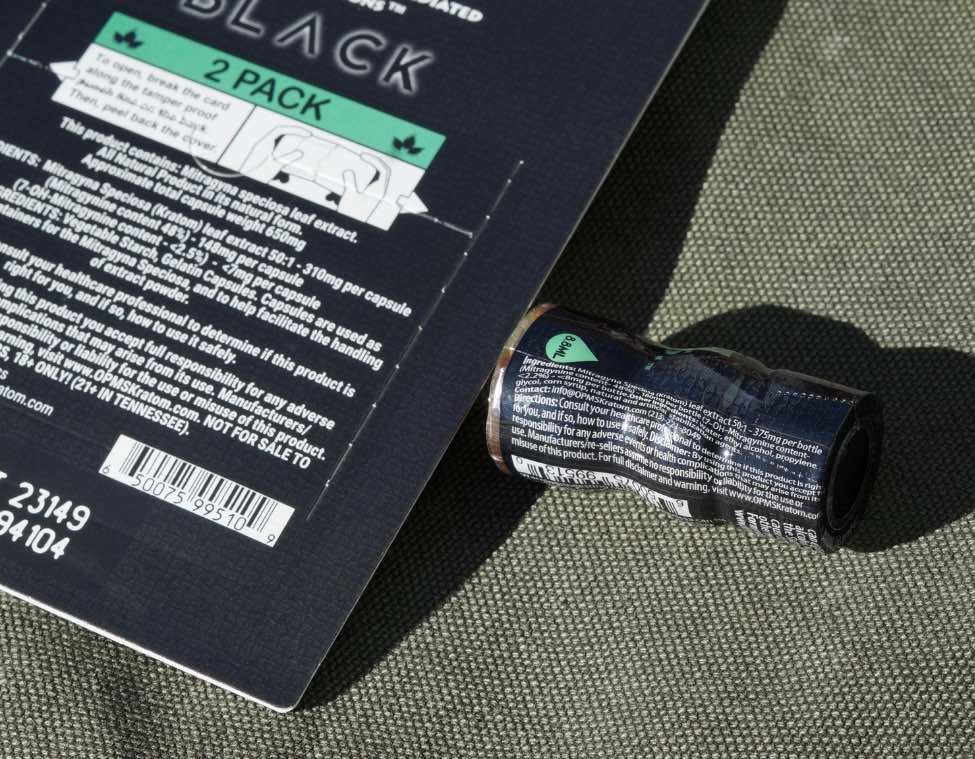
Are There Any OPMS Recalls?
You may be wondering if any OPMS products have been recalled in light of these lawsuits. Well, it appears that there haven’t been any reports or announcements of any OPMS recalls. Even the product named in the lawsuits, OPMS Black Liquid Extract and OPMS Gold Extract Capsules, are still widely available.
Furthermore, you may be wondering if OPMS has made any changes to their product labels. OPMS has made several changes and additions to their online disclaimers since 2021. They now include instructions for use and additional warnings on various pages of their website.
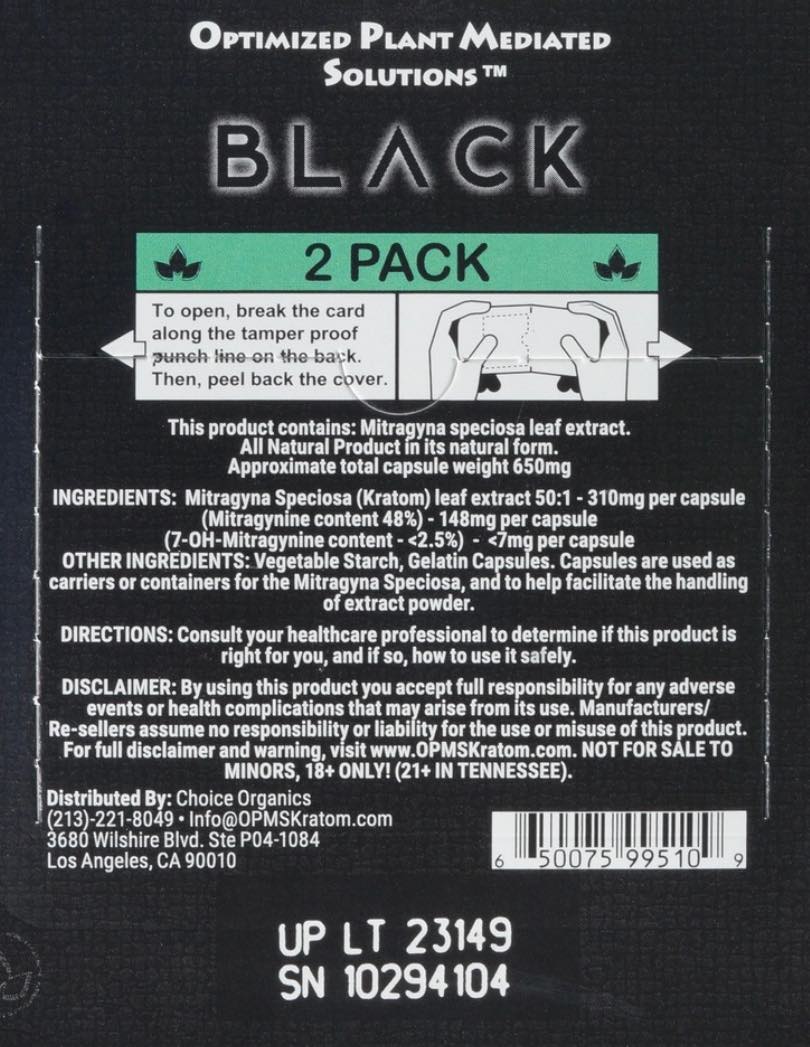
However, OPMS has not added these much-needed warnings and guidelines to their product packaging. This is especially important given how frequently OPMS is purchased in stores instead of online.
What’s more, the OPMS website still includes the phrase, “only for use as a botanical specimen.” This is a nefarious way that kratom manufacturers try to eschew responsibility for consumer harm.
What Can We Learn About the Entire Kratom Industry from the OPMS Kratom Lawsuit?
So, what do the lawsuits against OPMS Kratom mean for the rest of the kratom community? The Plaintiffs in the OPMS lawsuits do attack kratom as a whole, not just OPMS or Martian Sales.
However, there are a number of reasons why the various points made against OPMS shouldn’t speak for all kratom leaf products or all kratom vendors. To better understand what’s going on, let’s break down some of the key points.
1. Highly Concentrated Extract Products Should Be Consumed with Caution
As the Plaintiffs themselves state, the products that Ethan Pope consumed—OPMS Black liquid kratom shots—contain highly concentrated alkaloids.
Manufacturers follow a specific process to produce kratom extracts. These are much stronger than other kratom products. For the same product weight or volume, you wouldn’t find such high alkaloid levels in kratom leaves, kratom tea, or plain kratom powder.
This doesn’t mean that concentrated kratom is inherently bad. In fact, there are many situations in which it might make sense for a person to consume a larger amount of kratom. However, customers should use extra caution when consuming these products, especially if they’ve never tried kratom before.
2. Kratom Extract Strength is Not Always Straightforward
Of the many different types of kratom liquids, you’ll notice that liquid kratom shots, extracts, and tinctures have historically tended to cause the most controversy.
The Black Liquid Kratom that Ethan Pope allegedly consumed is a highly concentrated 50:1 extract. It contains up to 375mg mitragynine per bottle. If its potency claims are true, this product could be 50 times stronger than plain kratom leaf.
Not all Black Liquid Kratom retailers market the product the same way that OPMS itself does. As OPMS purportedly provides inadequate product warnings, some vendors have taken it upon themselves to compensate for the lack of instructions.
One vendor states, “This super high concentration can be felt with just a drop or two of the extract added to your tea or coffee. Even veteran users of kratom should start slow with this liquid extract because it is so different from other liquid extracts on the market,”
Another kratom vendor writes in their product description that, “95% of the alkaloid content is retained using this extraction method and hence is too strong for use on a daily basis.”
Is OPMS Black Liquid Kratom 50X Stronger Than Plain Kratom?
OPMS categorizes their products using relative comparisons, not actual contents. Thus, it’s hard to know if the “50X” extract really is 50 times the strength of plain kratom as claimed.
Plus, OPMS doesn’t specify which alkaloids are 50 times stronger. Are all of the alkaloids that were present in the natural leaf concentrated in the same ratio, or just a subset of the alkaloids?
Unfortunately, OPMS does not have very accessible lab tests, so a consumer browsing the website can’t access this information.
Thus, OPMS may leave consumers in the dark when buying kratom extracts. This is true not just for beginners, but also for experienced kratom consumers.
3. Many Kratom Vendors Label Their Products Properly, But Some Do Not
As we’ve mentioned, recent kratom lawsuits typically have one thing in common: a lack of adequate kratom product labels, warnings, and instructions. According to the plaintiffs in the Pope case, “The unreasonably dangerous and defective labeling of each defendant’s kratom products was a substantial factor contributing to Ethan’s death.”
Kratom vendors are obligated to know how to properly label kratom products. This is especially true if the vendors claim to follow Good Manufacturing Practices or sell products in states that have passed laws regulating kratom.
As you can see, OPMS really got themselves into some hot water for failing to label their extracts properly. Retailers are facing scrutiny as well.
It is not enough for a kratom vendor to list warnings and labels on their website. The warnings, instructions for use, expiration date, etc., must be on the product labels themselves.
OPMS had warnings and even some guidelines for use on their website. However, the company did not have this information on their products.
Are Retailers Responsible for Selling Mislabeled or Misleading Products?
It may seem unfair that retailers are put in a position where they have to warn customers about a product’s serving size and instructions because the manufacturer fails to do so. Yet kratom retailers are under no obligation to carry kratom products that are mislabeled.
A kratom retailer’s liability often depends on the extent of their knowledge about a product’s mislabeling or misleading nature, as well as their role in marketing the product. In many jurisdictions, consumer protection laws require that the information provided to consumers be truthful and not deceptive.
If retailers fail to comply with local, state, or federal regulations, they can face legal consequences just like manufacturers.
4. Kratom Consumers Need to Know How to Assess Their Kratom Vendors
Until kratom is regulated across the United States (and those regulations are enforced), kratom buyers have to individually assess kratom vendors and products. Consumers can make well-informed decisions by researching their vendors manufacturing practices and scrutinizing product labels.
It is extremely important to find kratom vendors who provide detailed product labels. These should include contact information, a full list of ingredients, adequate product warnings, and instructions for safe consumption. Ideally, the vendors should include a link to up-to-date third-party lab tests for each product.
5. Kratom Regulation and Accountability are Necessary for Consumer Safety
Overall, a key takeaway from the class-action suit and Pope family’s OPMS lawsuit is that kratom needs to be regulated for consumer safety.
Had kratom been regulated like other consumer goods, the manufacturers would have been mandated to label their products properly, ensure product purity, and inform the consumer of how to use the product.
These safety measures obviously can’t eliminate every possible harm that consumers can experience when consuming a product. People may still over-consume products accidentally or intentionally, or they may have underlying health conditions that lead to unexpected negative effects. Still, for the general population, regulation can be incredibly beneficial.
As we wait for state and federal kratom regulation to expand, we highly recommend that kratom buyers choose their vendors with care. Find a kratom vendor that adheres to food safety standards, regardless of whether or not they’re in a state that has passed legislation to regulate kratom.
Related: How would the Federal KCPA actually impact consumers?
Additionally, do some research before trusting certification programs like the AKA GMP Standards Program. Just as there are huge issues with certification programs like Fair Trade or Rainforest Alliance, there can be issues with kratom certification programs as well.
Should Kratom Extracts Be Banned?
The growing number of wrongful death kratom cases like the OPMS wrongful death lawsuit has caused controversy on all fronts of the kratom debate. But should the result of these cases be a ban on kratom extracts?
In the kratom community, some people place blame on kratom extract products and their manufacturers for many consumer problems. Highly concentrated kratom extracts have only a short history of use, whereas other formulations like kratom tea have been consumed for centuries, if not millennia. There isn’t a lot of anecdotal or clinical evidence to support extract safety yet.
Extracts are not necessarily bad, though. They are stronger than other products, but that doesn’t inherently mean they should be banned, even in light of the recent OPMS lawsuit. After all, too much green tea extract can kill you. However, in the wake of a terrible health outcome related to green tea extract, you don’t see attempts to ban green tea or green tea extract in all forms.
Rather, when issues arise, media outlets, legislators, medical professionals, and consumers alike criticize the specific circumstance that led to consumer harm.
Was that batch of the product pure? Was it stored in the right condition? Did their labels have adequate instructions, serving sizes, and warnings? Did the consumer have any pre-existing conditions? Were there interactions with other products they consumed?
Just as consumers still buy green tea extracts, consumers should be free to buy kratom extracts and other products. However, there is also a dire need for increased research and education on these products so consumers know what they’re getting themselves into. Consumers have rights and protections when it comes to honesty in labelling and marketing.
In many cases, it is all too easy for consumers to unintentionally misuse kratom extracts and face adverse reactions. Nevertheless, instead of simply demonizing kratom products, we believe it is critical to prioritize consumer education, quality-controlled manufacturing, and proper labelling.
To realize these goals, consumers and vendors alike can start by advocating for kratom regulation (and enforcement of said regulation) at the state and federal levels.
Traditional Kratom Tea: A Promising Future for Kratom?
We firmly believe that the lack of kratom regulation combined with unscrupulous vendor practices are partially responsible for the slew of recent kratom court cases and bad press. Some individuals and organizations instead place blame solely on the product formulation.

Unlike extracts, kratom tea has an extremely long history of use. We have much more anecdotal evidence for how to consume tea safely than we have for concentrated kratom extracts.
In terms of normalizing kratom, tea bags are great. Top Tree Herbs kratom tea bags in particular are packaged in containers that include a complete list of ingredients, instructions for consumption, serving size, and a QR code to view lab tests.
Kratom tea and other less concentrated kratom products do have power to shift perspectives and elevate the kratom industry. However, being more mild or more normalizable does not make a product better than those that are stronger or less familiar.
Keep in mind that there are thousands of products that exist with compounds in concentrations not found in nature. From life-saving pharmaceuticals to food products like vanilla extract, there are so many examples of concentrated products that people benefit from.
Charting the Future of Kratom: The Path Forward from the OPMS Lawsuit
Navigating the world of kratom, particularly in the context of the recent OPMS lawsuit, is obviously complex. Clearly, the lack of consistent regulation and enforcement plays a pivotal role in the issues faced by consumers and the industry alike.
The controversies surrounding OPMS kratom underscore the urgent need for transparent and responsible practices within the kratom market. As the legal landscape for kratom evolves and awareness grows, the kratom community is at a crossroads.
The choices made by vendors, consumers, researchers, and regulators will shape the future of this traditional botanical. Understanding the importance of context and circumstance is essential. Hopefully, advocates focus on research and education, and not calling for outright bans of any kind.
